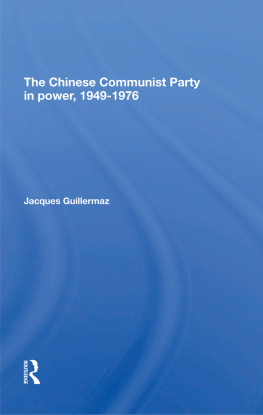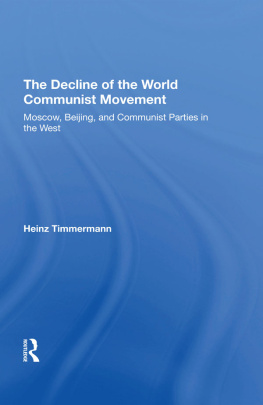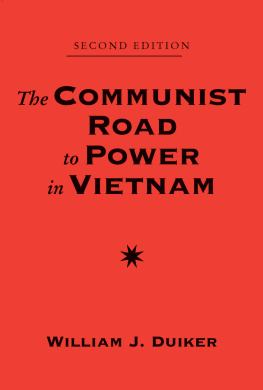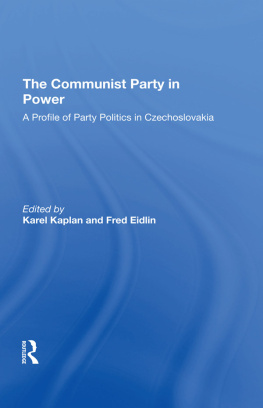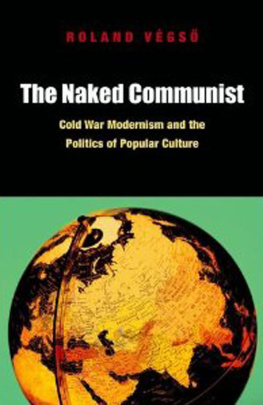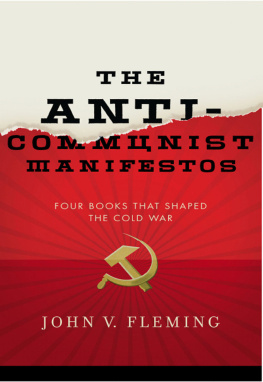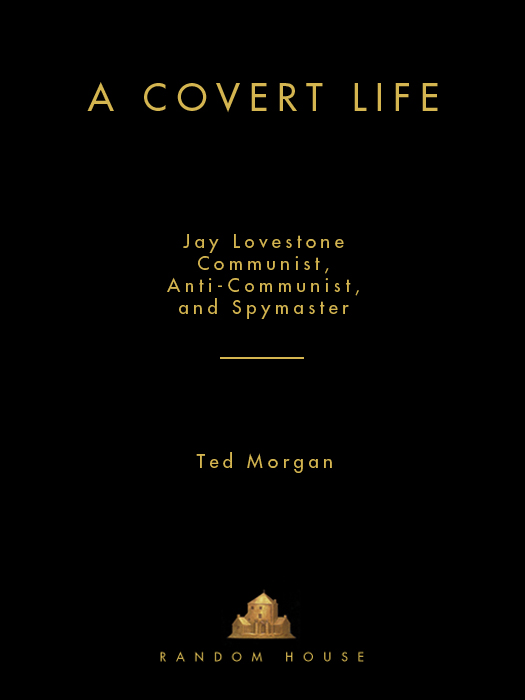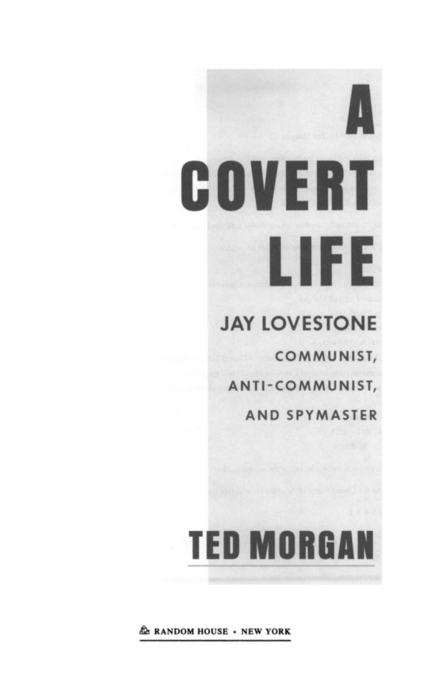Copyright 1999 by Ted Morgan
All rights reserved under International and Pan-American
Copyright Conventions. Published in the United States by Random
House, Inc., New York, and simultaneously in Canada by Random
House of Canada Limited, Toronto.
R ANDOM H OUSE and colophon are registered trademarks of Random House, Inc.
Library of Congress Cataloging-in-Publication Data
Morgan, Ted.
A covert life : Jay Lovestone, communist, anti-communist, and spymaster / by Ted Morgan.
p. cm.
eISBN: 978-0-307-80566-9
1. Lovestone, Jay. 2. CommunistsUnited StatesBiography. 3. American Federation of LaborOfficials and employees. 4. United States. Central Intelligence AgencyOfficials and employees.
I. Title.
HX84.L68M67 1999
335.43092dc21
[B] 98-39514
Random House website address: www.atrandom.com
v3.1
PREFACE
During the four years that I spent on this book, when friends asked me what I was working on and I replied, A biography of Jay Lovestone, most of them asked, Jay who? Of those few who remembered him, fewer still knew why he was worth remembering: Boss of the American Communist Party, wasnt he? Expelled by Stalin, as I recall. Started his own party, what were they called, the Lovestoneites? Handled foreign affairs for George Meany in the AF of L. Something to do with the CIA, under the cover of the labor movement. Some kind of minence grease, wasnt he?
Lovestone was all of the above but is largely forgotten in our collective memory. He probably would have wanted it that way, for his method was to work behind the scenes, unheralded. Lovestone was a Zelig-like figure, the one in the photograph you cant quite place, standing behind the president, or shaking hands with a foreign chief of state. The one whispering into the ear of the secretary of state. The one seen scurrying from the national security advisers office whose name does not show up on the appointment calendar.
Lovestone never ran for office and never held a government post. He had no private wealth and commanded none of the usual levers of power. He did his best to stay out of the papers. But his friend Ernest Cuneo described him in his syndicated column, The National Whirligig, as one of the half dozen most powerful men in the hidden power structure of America.
According to Cuneo, Lovestone was a maker of foreign policy for forty years as organized labors Secretary of State. He was the quintessential man behind the man, secretly summoned to the White House to confer with presidents. With his uncanny ability to sniff the diplomatic winds, wrote Cuneo, he is the veritable Sherlock Holmes of diplomatic affairs. He was also, added Cuneo, the premier Kremlinologist of the free world, a onetime Communist, the first outsider to take Stalin head-on. He had known Lenin, who had once advised him, Remember, a good housewife finds use for even a broken shoestring.
In 1982, when he was an old man musing on the past, Lovestone lapsed from his habit of avoiding the press and gave a long interview to a Canadian reporter, Peter Worthington of the Toronto Sun. In some ways he is the most remarkable man in America, if not anywhere, Worthington wrote. Not only for the history encountered face to face, but for the history he has influenced, shaped and even changed. He more than anyone probably saved the unions in Europe after World War II from going Communist. He was instrumental in saving post-war Europe from Stalin and his successors. No one has fought for freedom and organized labor as relentlessly and effectively as Jay Lovestone. Though his life is intriguing and unique, no biography has been written about him.
But how to write the biography of a man who cultivated anonymity, was obsessed with secrecy, worked through surrogates, unseen and unheard? Most of the time he covered his tracks, but with posterity in mind he squirreled away his papers, which he left to the Hoover Institution and which were opened to researchers in 1995. With his papers and those in other archives, including the Comintern papers in Moscow, and with the recollections of those who knew him and survived him, the outline of his life becomes visible. Yet he remains an often elusive figure, as though seen in the pulses of a strobe light, brightly illuminated for a moment, then retreating into darkness.
CONTENTS
1

THE BLOND BEAST
As it often happened, the father came first with his oldest daughter to take care of the house, leaving the rest of the family behind. In the great hall of Ellis Island, divided by railings, they inched forward in the endless line, where federal inspectors processed as many as five thousand immigrants a day. Would they get through or be sent back? The father, his scraggly beard covering his shirt collar, had brought his prayer shawl and phylacteries. God did not refuse the pious. But was God present in the midst of this bustle, this polyglot confusion?
The doctors were the keepers of the gates, one inspecting their eyes, another asking them to cough. Not carrying trachoma or tuberculosis, they were let through, into another line, finding themselves at last before a uniformed man at a desk. Barnet Liebstein was allowed to keep his name, unlike so many others, such as the man who was told an Americanized name to give the inspector but forgot it and blurted out in Yiddish Shane vergesse (I forgot), ending up James Ferguson.
As for his age, or even his daughter Marys age, he wasnt sure. In the old country Jews were not given birth certificates; they were nonpersons from the day they were born. He figured he was in his forties, while Mary was in her late teens. Once the rest of the family arrived, he would assign birthdays to all of them.
The year was 1906, in the second wave of Jewish migration from the Russian empire. In tsarist Russia, which included the Baltic states and part of Poland, Jews were assigned to a large boundaried district called a pale. They were not allowed to own land, or attend universities, or travel outside the district without papers. But they were allowed to serve in the tsars army. Essentially they were a minority under surveillance, the targets of a sly bureaucracy. Depending on the whim of the tsar, the pendulum swung from repression to relative ease.
America beckoned, with its policy of open immigration. In 1882 the United States had 100,000 Jews; by 1920 it had 4 million. The great bulk of them came from the Pale, which they fled for practical reasons: to avoid conscription, to travel without an internal passport, to escape a small life as a herring salesman at town fairs.
One of these immigrants seeking a fresh start was Barnet Liebstein, a pious and orthodox man who took his own food for the crossing because the food on the boat was not kosher, and who did not neglect his prayers amid the stench and blare of steerage. Barnet came from a village too small to figure on most maps: Molchad, in the then Polish (and later Lithuanian) province of Grodno, south of the Lithuanian capital of Vilnius and west of the Belorussian capital of Minsk. Barnet was the rabbi of Molchad, a respected figure to whom people came for more than religious services. They came to him in a marital dispute or over a contested inheritance, rather than go to the civil authority.


